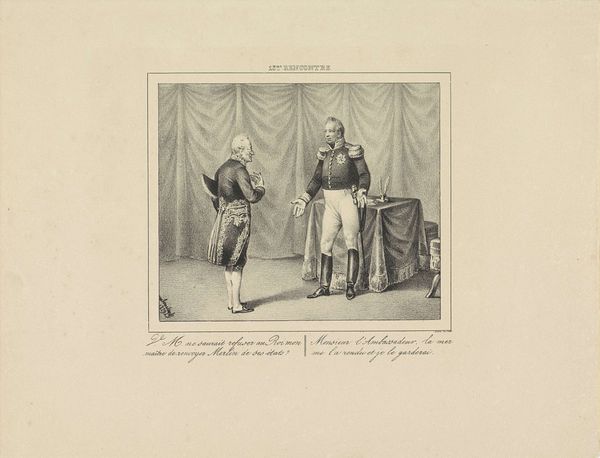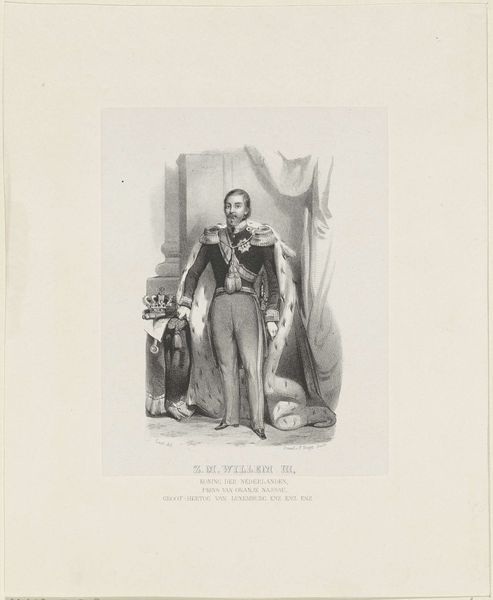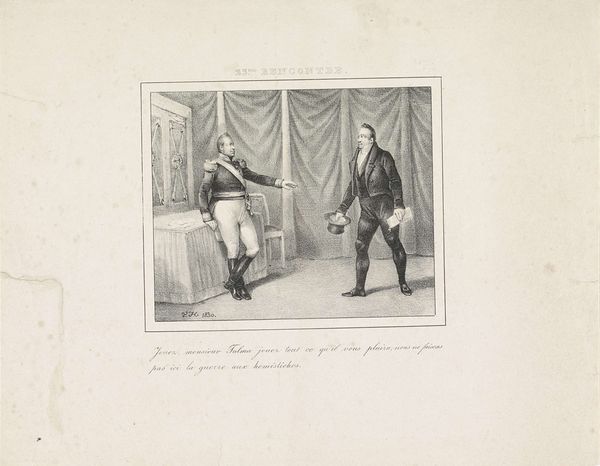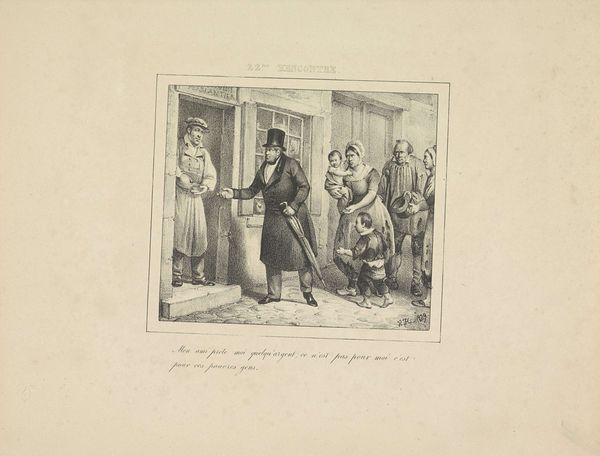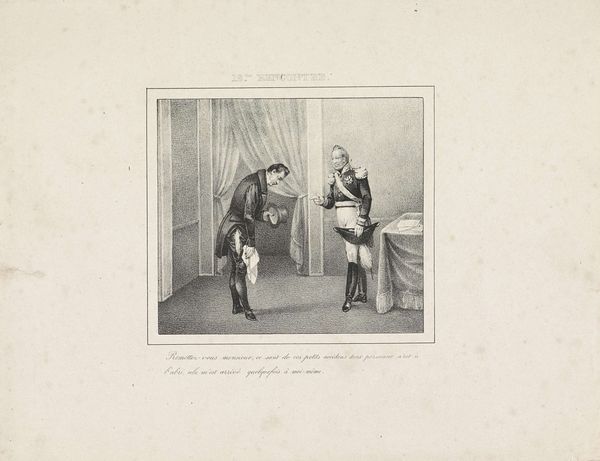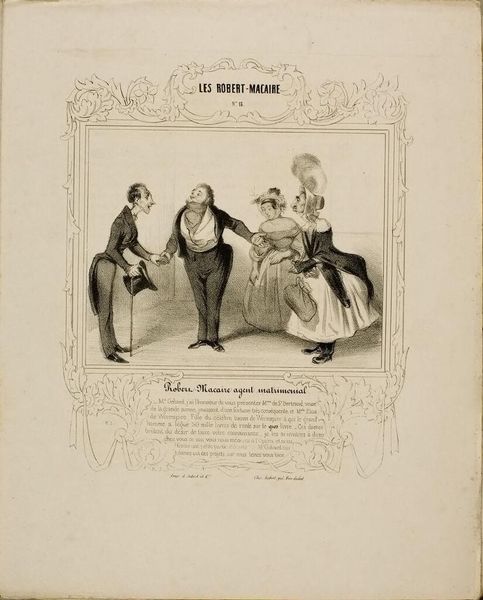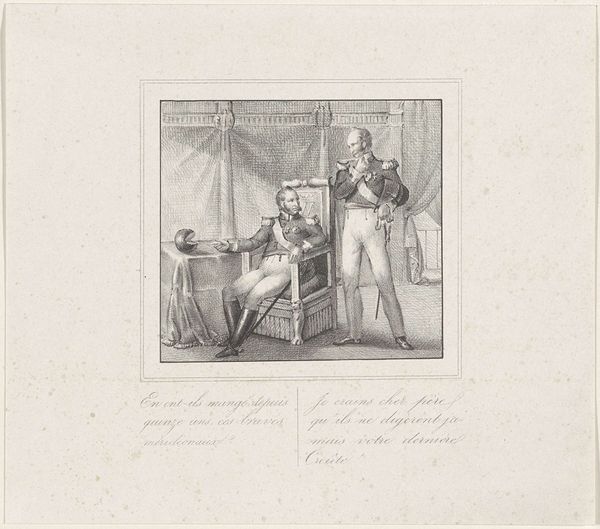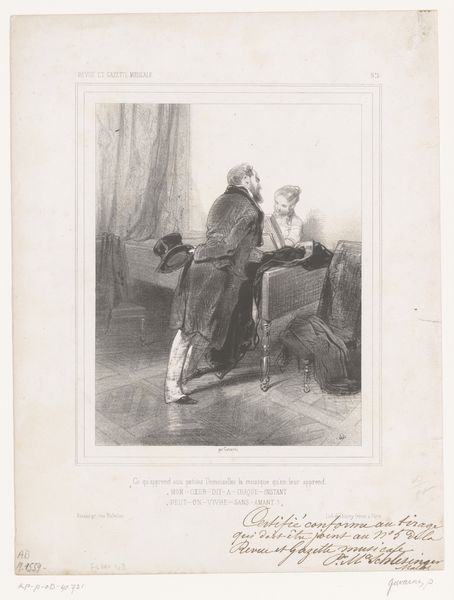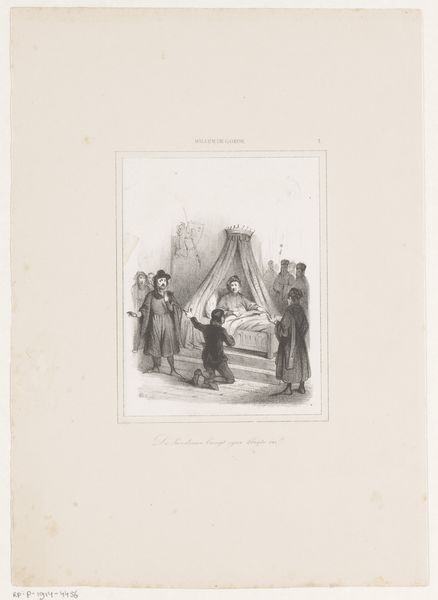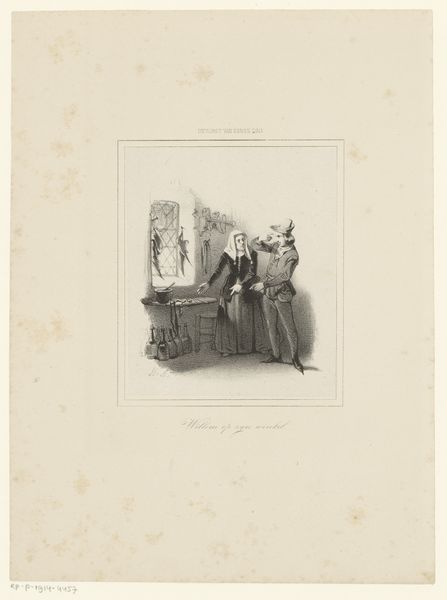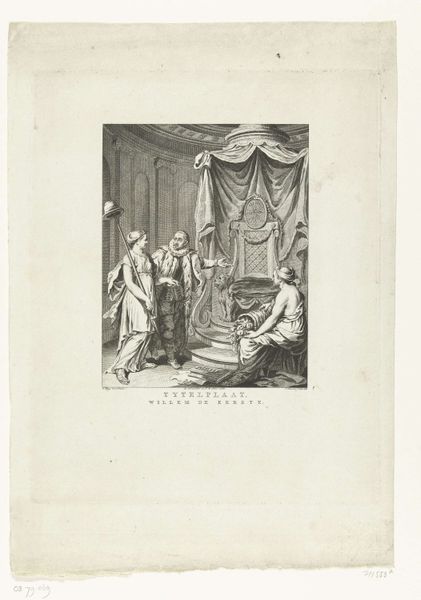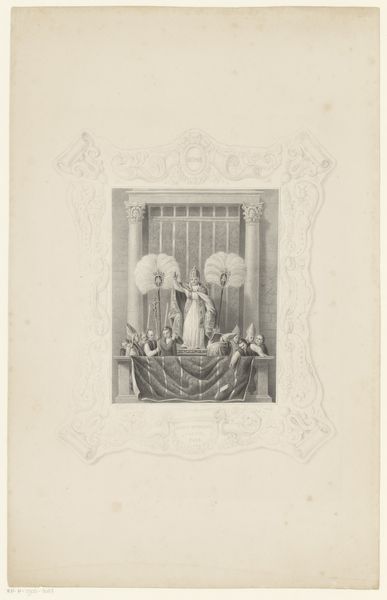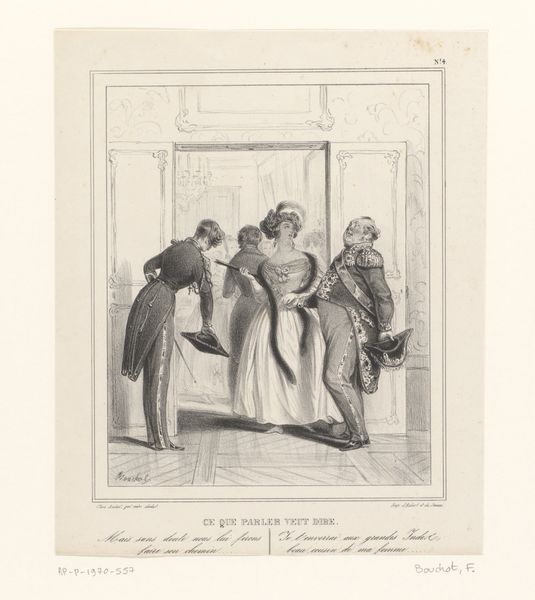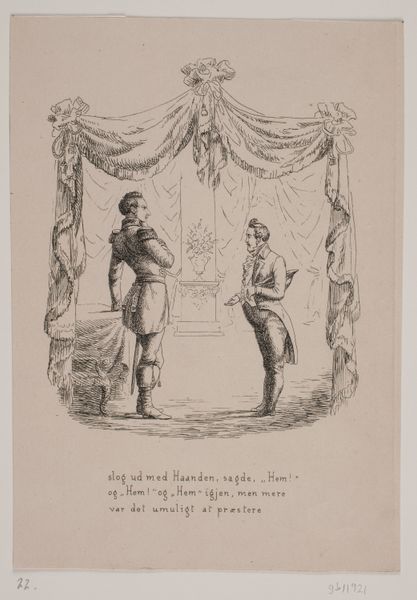
Koning Willem I ontvangt een jongeman die om de hand van zijn dochter vraagt, 1829 1829
0:00
0:00
print, paper, engraving
#
portrait
#
narrative-art
# print
#
paper
#
romanticism
#
history-painting
#
engraving
Dimensions: height 235 mm, width 305 mm
Copyright: Rijks Museum: Open Domain
This print, made in 1829 by Jean-Louis Van Hemelryck, depicts King Willem I receiving a young man who seeks his daughter's hand in marriage. The print was made using a process called lithography, which relies on the chemical repulsion of oil and water. The artist would have drawn his composition onto a flat stone with a greasy crayon, then treated the stone so that ink adhered only to the drawn areas. This relatively new printing technique allowed for the creation of detailed, tonal images. The work's social significance lies in its commentary on marriage and class. The suitor's nervous demeanor, contrasted with the King's authoritative stance, suggests the power dynamics at play in such unions. The print captures a specific moment in time, and its mass production through lithography made it accessible to a wide audience, reflecting a shift in how art and social commentary could be disseminated. Ultimately, the medium and the subject matter speak to broader issues of social status and the circulation of images in early 19th-century society.
Comments
No comments
Be the first to comment and join the conversation on the ultimate creative platform.
